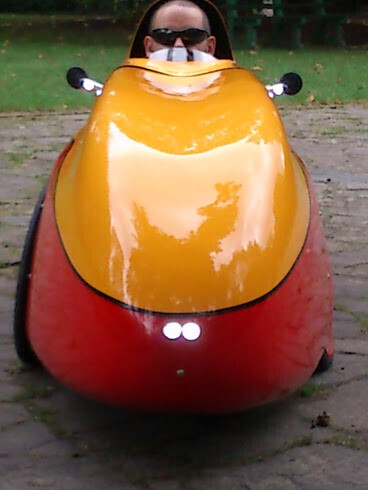🌿Wild Camping Etiquette: Staying Respectful In Nature🌿
Wild camping is more than just setting up a tent—it’s about immersing yourself in nature while leaving no trace. As a long-distance recumbent trike traveler, I’ve camped in many remote places, always aiming to respect the tranquility of the wild. Whether you’re a seasoned bikepacker or a beginner in outdoor adventures, these etiquette tips will help you camp responsibly while ensuring a safe, peaceful, and unforgettable experience.
🏕️ Choosing the Right Spot: Privacy, Safety & A Good Night’s Sleep
When wild camping, I always look for a hidden and secluded spot—not just for the sake of privacy but also for safety. At night, when I sleep, I am vulnerable, so I prefer a location where I am unobserved and undisturbed.
✅ Find a quiet location away from roads, trails, and noisy water sources.
✅ Check the sky—if I can see the stars, there are no clouds, and no rain is expected!
✅ Stay alert—unexpected travelers may pass by. Keep your trike and belongings in sight to avoid becoming a victim of pickpockets.
✅ Be ready for a quick departure—always position your trike and gear in a way that allows you to leave immediately if necessary.
💡 Pro Tip: Arrive before sunset to have enough time to find a good spot, set up camp, and blend in with the environment.
🎶 Noise Control: Silence is Golden in Nature
I’m known as “Velo Cumbia” because I love cycling with loud Cumbia music blasting from my speakers. But when it comes to wild camping, it’s an entirely different story.
🌲 Respect the tranquility of nature. Loud sounds disturb the wildlife, making animals stressed and disoriented.
🚵 Be mindful of other adventurers. People wild camp to experience peace and solitude, not a surprise outdoor concert.
🌙 Enjoy nature’s soundtrack. The rustling leaves, distant owl calls, and soft winds create the best natural lullaby.
🚽 Leave No Trace: Proper Waste Disposal
A responsible camper always leaves no trace behind. When nature calls:
1️⃣ Dig a hole about 20 cm (8 inches) deep and at least 50 meters (164 feet) away from your camp and any water source.
2️⃣ Cover it up completely with dirt—this allows it to decompose naturally.
3️⃣ Dispose of toilet paper properly:
- If I have a campfire, I burn the toilet paper completely.
- If there’s no fire, I store it in a small plastic bag and throw it into a public garbage bin later.
🚯 Never leave waste behind. A wild campsite should look exactly as it was before you arrived—or even cleaner!
🔥 Campfire Etiquette: Use With Caution
A campfire can be a cozy companion, but it must be handled responsibly:
✅ Use existing fire pits to minimize damage to the ground.
✅ Keep it small and controlled—a tiny fire is enough for warmth and cooking.
✅ Never leave it unattended and fully extinguish it before sleeping or leaving.
🚫 Fire-Free Alternative: In dry areas, fires can be a hazard. Use a small gas stove instead to prepare meals safely.
🍎 Biodegradable Waste: Let Nature Do Its Work
Unlike plastic and non-organic waste, natural food scraps decompose quickly, especially when left in an area where ants and insects thrive. I often observe how quickly they clean up a banana peel or apple core—it’s fascinating to see nature at work!
✅ In insect-rich environments: Ants, beetles, and microbes handle organic waste efficiently, turning it back into soil.
✅ In cold or fragile ecosystems: In alpine, desert, or low-insect areas, decomposition takes much longer—so in these cases, it’s best to pack out fruit peels and cores.
🌱 Key Takeaway: If you’re camping in a warm, lively environment, feel free to let nature take care of biodegradable waste. Just don’t leave large piles in one place, as they can attract wildlife in ways that disturb their natural behavior.
🏕️ Sleeping Outside: A Magical Experience
One of my favorite things about wild camping is sleeping outside my tent.
🌌 After setting up my tent, I lie back and look at the sky full of stars.
🌙 If there are no clouds, that means no rain is expected—so I can sleep outside peacefully!
🌲 Waking up under the open sky with nature all around me is one of the greatest joys of wild camping.
💡 Pro Tip: Even if you plan to sleep outside, always set up your tent as a backup in case the weather changes unexpectedly.
🚮 Pack It In, Pack It Out: Leave No Trace
Nature is not a dumping ground, and every responsible camper follows the golden rule: Take out everything you bring in.
✅ Food packaging, plastic, and waste—always pack them out.
✅ Toilet paper (if not burned)—store it in a sealed bag until you find a garbage bin.
✅ Respect local ecosystems—dispose of biodegradable waste responsibly, considering the environmental conditions.
🚲 A true adventurer respects the land and leaves it untouched for the next traveler.
🦉 Respect Wildlife and Fellow Campers
Wild camping means sharing space with nature’s inhabitants. Keep in mind:
✅ Store food securely—animals can smell it from far away.
✅ Observe wildlife from a distance—never feed them.
✅ Avoid loud noises—it disturbs both wildlife and other campers.
If you encounter fellow wild campers:
🤝 Respect their solitude—give them space.
🤫 Keep your voice low—sound carries far in quiet nature.
🗑️ Set an example—if you see trash left by others, consider picking it up.
🏁 Final Thoughts
Wild camping is an opportunity to disconnect from the modern world and reconnect with nature. By following these simple etiquette rules, you ensure that nature remains pristine for generations to come.
🌿 Respect nature.
🏕️ Leave no trace.
🚶 Camp responsibly.
What are your personal wild camping rules? Share them in the comments! 🚲✨


